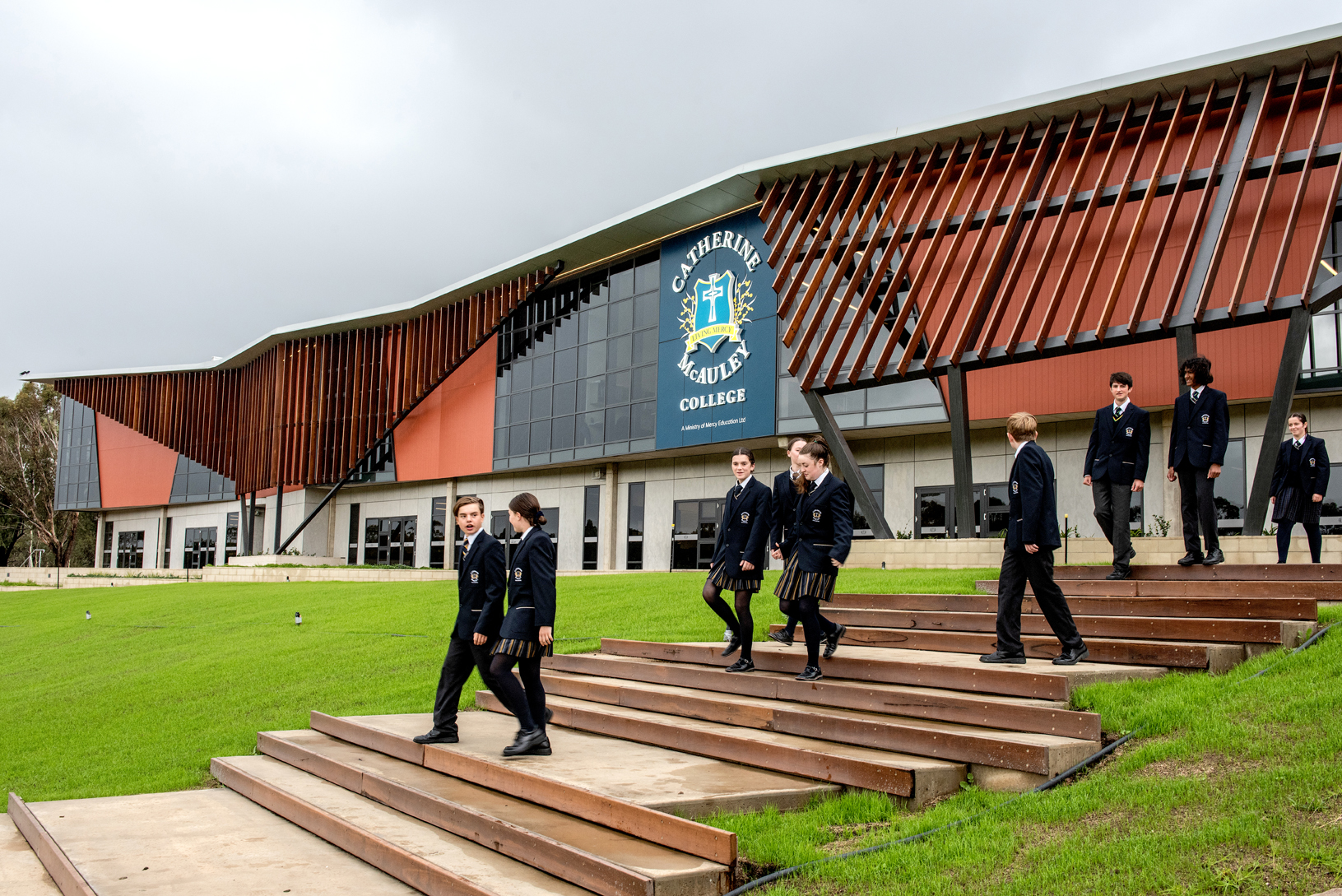Coolock hosts Transition meetings for Year 7, 2020
Transition Meetings with Year 7 2020 Families
Last week, the Transition Program for our 2020 Year 7 students continued with family meetings. Leadership staff across the College conducted over 260 meetings, welcoming families to Catherine McAuley College. These meetings give us a wonderful opportunity to connect with our students and understand more about each of them so that we can best support their successful transition to our College.
Student wellbeing and learning is a priority for us as a College community. In supporting our new Year 7s as they navigate the move from primary to secondary school, our teachers understand how these changes impact on their students and are well placed to help them make positive adjustments to their new school.
The process of building a profile of each student assists with transition. The reality is, that students do not only experience transition when they begin primary school and then secondary school. The challenge for us as a College is to be supportive and well planned through these phases. Most students make many transitions in their school lives. They do so when they:
- begin early childhood education
- start school
- change year levels within a school
- transfer from one school to another
- shift from primary school to intermediate school, and on to secondary school
- move from secondary school to further education, training and employment
When students change class within or between schools, they must adjust to new surroundings, become familiar with new teachers and peers, learn new ways of working, and make sense of the rules and routines that operate in their classes. While students are navigating the formal school environment, they are also adjusting to the social changes that happen when changing schools and classes.
There are five key aspects occurring when adolescents move from childhood to adulthood that are useful to consider when thinking about the provision for students at transitions. These aspects are important considerations in our planning of transition programs and processes and we are mindful of all these factors when planning our transition programs
Intellectual: Young adolescent learners are curious, motivated to achieve when challenged, and capable of critical and complex thinking
Social: Young adolescent learners have an intense need to belong and be accepted by their peers while finding their own place in the world. They are involved in forming and questioning their identities on many different levels.
Physical: Young adolescent learners mature at varying rates and go through rapid and irregular physical growth, with bodily changes that can cause awkward and uncoordinated movements.
Emotional & Psychological: Young adolescent learners are vulnerable and self-conscious, and often experience unpredictable mood swings
Moral: With their new sense of the larger world around them, young adolescent learners are idealistic and want to have an impact on making the world a better place.
New Science Furniture
Last Friday, the Science laboratories at Coolock were upgraded with new furniture. This is in line with our focus on providing contemporary learning and teaching spaces that support the students and teachers engagement with integrated Science, Technology, Engineering, Arts and Mathematics (STEAM) learning.
Professional Learning Day
Last Friday all staff – teaching and administration – engaged in a joint professional learning day with Marist College Bendigo staff. There was an inspiring spirit of collaboration and friendship throughout the day as teachers and learning support staff focused on strategies for classroom management. Glenn Pearsall led the day and his engaging presentation promoted the ideals of creating positive relationships with students as the basis for respectful classroom environments.
The principals, Mr Brian Turner and Mr Darren McGregor led sessions with the administration staff/educators. The staff focused on the skills and qualities that they bring to their work each day and the important contribution they make to the educational environment and wellbeing of students, teachers and families at Catherine McAuley College.
Mr Len Watson, Acting Deputy Principal – Coolock


